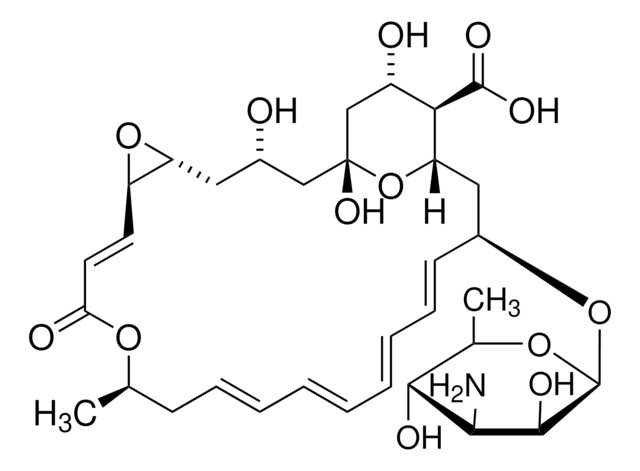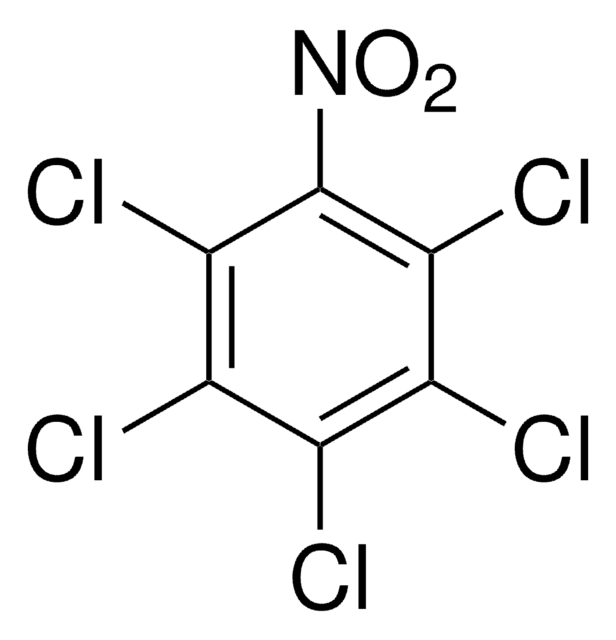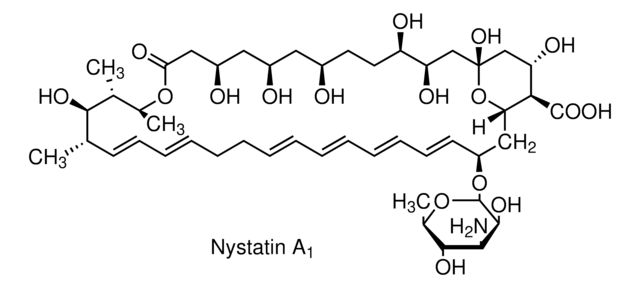P9703
Pimaricin
from Streptomyces chattanoogensis, ≥95% (HPLC)
Synonym(s):
Natamycin
About This Item
Recommended Products
biological source
Streptomyces chattanoogensis
Quality Level
Assay
≥95% (HPLC)
form
lyophilized powder
powder
solubility
0.1% formic acid in methanol: soluble 1 mg/mL
antibiotic activity spectrum
fungi
application(s)
agriculture
environmental
Mode of action
cell membrane | interferes
storage temp.
2-8°C
SMILES string
C[C@@H]1C\C=C\C=C\C=C\C=C\[C@@H](C[C@@H]2O[C@](O)(C[C@@H](O)C[C@H]3O[C@@H]3\C=C\C(=O)O1)C[C@H](O)[C@H]2C(O)=O)O[C@@H]4O[C@H](C)[C@@H](O)[C@H](N)[C@@H]4O
InChI
1S/C33H47NO13/c1-18-10-8-6-4-3-5-7-9-11-21(45-32-30(39)28(34)29(38)19(2)44-32)15-25-27(31(40)41)22(36)17-33(42,47-25)16-20(35)14-24-23(46-24)12-13-26(37)43-18/h3-9,11-13,18-25,27-30,32,35-36,38-39,42H,10,14-17,34H2,1-2H3,(H,40,41)/b4-3+,7-5+,8-6+,11-9+,13-12+/t18-,19-,20+,21+,22+,23-,24-,25+,27-,28+,29-,30+,32+,33-/m1/s1
InChI key
NCXMLFZGDNKEPB-FFPOYIOWSA-N
Looking for similar products? Visit Product Comparison Guide
Related Categories
General description
Application
Biochem/physiol Actions
Other Notes
Storage Class Code
11 - Combustible Solids
WGK
WGK 3
Personal Protective Equipment
Certificates of Analysis (COA)
Search for Certificates of Analysis (COA) by entering the products Lot/Batch Number. Lot and Batch Numbers can be found on a product’s label following the words ‘Lot’ or ‘Batch’.
Already Own This Product?
Find documentation for the products that you have recently purchased in the Document Library.
Our team of scientists has experience in all areas of research including Life Science, Material Science, Chemical Synthesis, Chromatography, Analytical and many others.
Contact Technical Service




